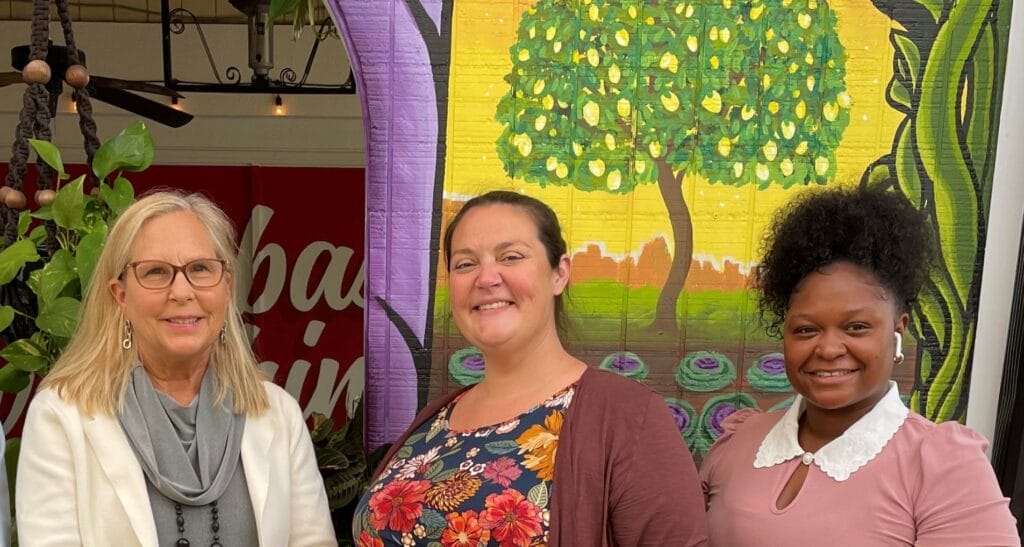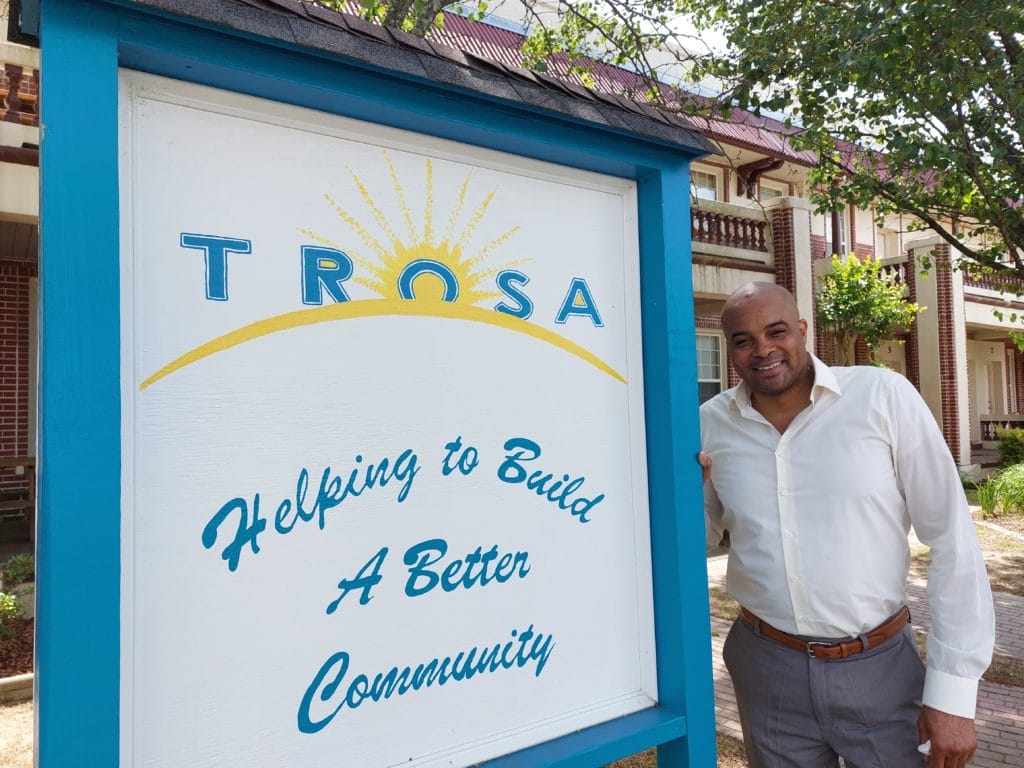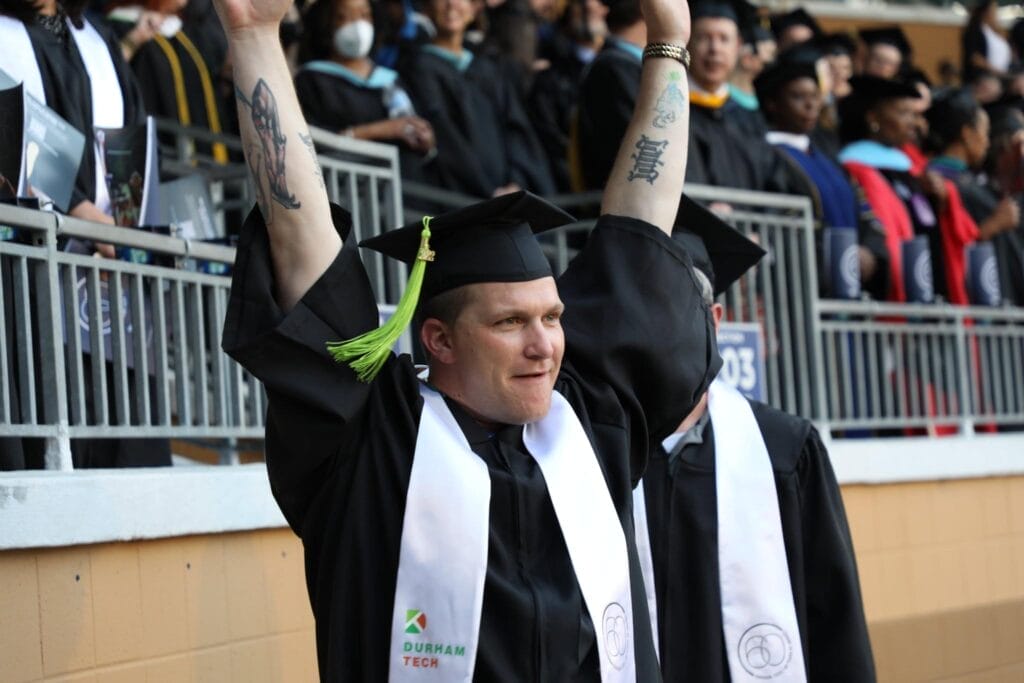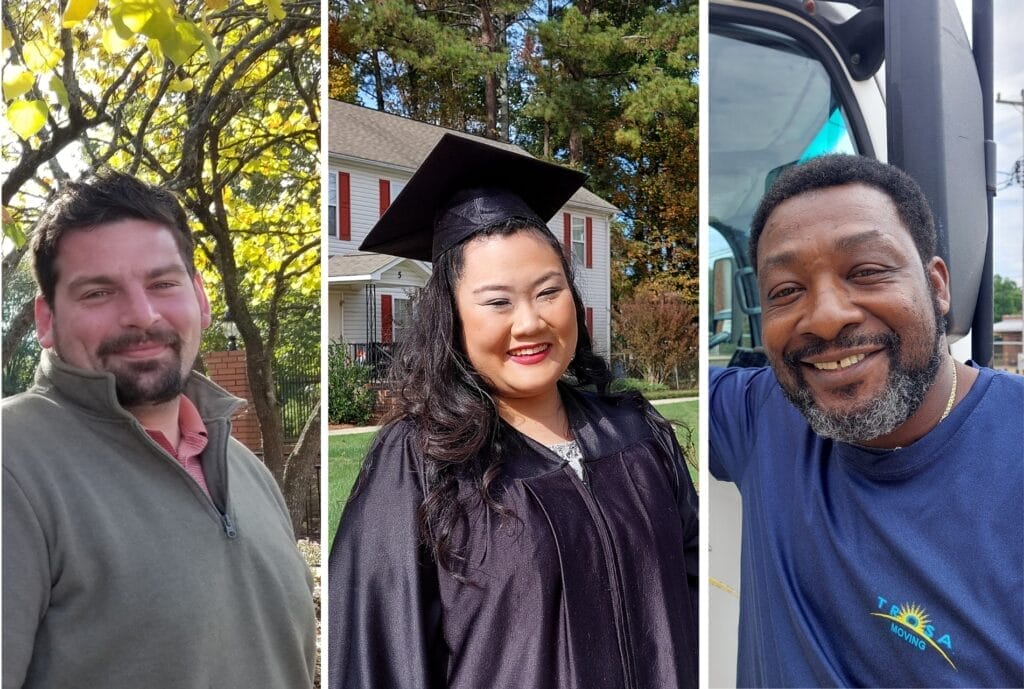
TROSA is a licensed, innovative, multi-year residential treatment program. TROSA is a cost-free program. You do not need insurance. TROSA is a peer-driven program. Each day, TROSA gives more than 400 men and women the tools and support they need to be productive, recovering individuals by providing life skills and vocational training, education, health services, counseling, mentoring, and continuing care. Most importantly, we provide a safe space for peers to help each other in their recovery. We provide these services and housing, food, clothing, and personal care items to every resident at no charge.
To view/print our informational brochure, please click here.

TROSA offers a range of individual and group therapies to help individuals with issues such as depression, anxiety, and trauma.
TROSA’s program model provides ongoing support and mentorship. The TROSA community relies on its members, both staff and those in the program, as key agents of change. These change agents influence individual attitudes, perceptions, and behaviors associated with drug use. Our motto, “Each One, Teach One,” reflects the importance of peer support in our program and the community’s vital role in achieving and maintaining recovery.
Click here to learn more about therapies and classes offered at TROSA.
Services are provided by licensed and certified treatment professionals, program graduates, peer leaders, and trained peer support specialists. [Pictured above: Members of TROSA’s Counseling staff, led by Clinical Services Director Lisa Finlay (pictured left)]

TROSA residents participate in experiential vocational training and learn and practice life skills for recovery with others through team-based Community Assignments. Residents will learn specific life and vocational skills by participating in various departments throughout our campus, including our social enterprises.
Community assignments, a cornerstone of TROSA, help mimic a successful life outside of TROSA: waking each morning with a purpose and a role to fill. Community assignments provide residents with real-time opportunities to identify and address behavior changes and recovery goals they would like to achieve in an environment of support, accountability, and mentorship with peers and staff. It’s a safe space to grow and learn new skills and talents; receive real-time life lessons on how to communicate, trust others, resolve conflicts, and build confidence; and learn how to work with and lead teams.

Education is a key component of our treatment program. Research shows the more education and training individuals attain, the more successful they will be at gaining and maintaining stable employment, allowing them to return to their families and communities and to maintain recovery.
After six months in the program, TROSA requires residents without a high school diploma or GED to take an adult literacy or GED class.
At one year in the program, eligible residents can apply to take college courses. Other residents have opportunities to take classes and earn credentials as space and time in the program allow.
The photo above of a TROSA GED recipient was taken by Marcy Gardner for Durham Technical Community College‘s 2022 commencement ceremony.

Recovery is a life long process; TROSA encourages graduates to stay involved in our community. Our Continuing Care services help program graduates stay in recovery, employed, and crime free as they transition into the community. Services include transportation to and from work; access to safe, low cost housing; and support groups focusing on relapse prevention. Graduates’ engagement in the TROSA community benefits their recovery and helps current residents.

If you have questions about TROSA’s residential treatment program or think that TROSA may be the right program for you, please contact our Admissions team. You can also read our Frequently Asked Questions page. We require that the individual seeking treatment must call or write to us directly and participate in a telephone interview.
Call 919-419-1059 (or our toll-free number 833-408-7672). You can also email admissions@trosainc.org and you will be connected to our team who can answer your questions and conduct your admissions assessment.
“In my experience, TROSA is unparalleled with regard to the range, scope, and scale of its approach to serving those with complex substance use disorders, including those with co-occurring mental health disorders. TROSA is an exemplar of a comprehensive, long term, evidence-based model for treating substance use disorders. Effectively combining proven community-based and behaviorally-focused methods with clinically responsive therapies, TROSA offers unique opportunities for individuals to achieve and sustain their recovery. The program not only addresses behavioral, social and psychological issues associated with substance use disorders; it also offers tools and resources for its residents to enjoy a better life. As evident in the program’s outcomes, as well as its accumulation of national, state and regional awards and recognitions, TROSA fills a significant gap by specializing in the treatment of highly vulnerable individuals.”
Paul Nagy, LCMHC, LCAS, CCS
Assistant Professor, Duke University School of Medicine
Department of Psychiatry and Behavioral Sciences, Division of Social and Community Psychiatry